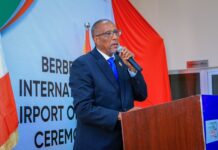Unless the Kenyan Government takes a different approach with Somalia, the long-term territorial feud between the two countries will only increase al-Shabaab’s power.
Al-Shabaab is a fundamentalist group which aims to expand Islamic principles across East Africa. Originating in Somalia, the group uses violent means to advance its cause and, as a result, was classed as a terrorist organisation in 2008 by the US Department of State.
Whilst for the majority of its existence al-Shabaab has focused its attacks on Somalia itself and kept religion at the core of its rule, in recent months the militant group has advanced its campaigns to take in Kenya on the grounds of national and territorial dispute.
Conflicts over land between Kenya and Somalia date back to the early 1960s following the end of the British colonial rule and the victory of the Mau Mau Uprising. On the dissolution of all former British colonies in East Africa, Kenya was granted administration of the land bordering Somalia. What ensued was a violent and lengthy battle between the two nations which became known as the ‘Shifta War’. Somalis trapped in the borderland fought ceaselessly to be reunited with the rest of the country and to be freed from the control of the Kenyan Government.
The said events may be viewed as a significant cause for the current rise of al-Shabaab in Kenya. When expanding into the country, the terrorist group did not struggle to recruit soldiers to fight for their cause. Native Somalis still living on Kenyan territory today resent the historic conflict and argue that since the 1960s the treatment of those living in the north-eastern regions of the country has not been equal to the treatment of native Kenyans. Indeed, according to the Truth, Justice and Reconciliation Commission, Muslims in Kenya feel a lack of equality in education and the provision of basic social services such as healthcare.
Despite the fact that the Kenyan Government denies such accusations, it has been independently proven that in Nairobi only 30 per cent of the population live below the poverty line compared to 74 per cent of the population in north-eastern regions.
This statistic certainly supports the fact that the government is far less active in terms of the provision of public services in outer regions of the country than it is in the thriving and constantly growing capital. This is further supported by the knowledge that in Nairobi 1 doctor serves 20,715 people, as opposed to the north-east where 1 doctor serves 120,823.
In addition to this historic resentment by Somalis of the Kenyan Government, certain short-term factors cannot be overlooked when considering why al-Shabaab has become so prominent. The extrajudicial killings of Somalian Muslims suspected of terrorist acts by the Kenyan Anti-Terrorism Police Unit (ATPU) alongside acts of collective punishment, such as the 1984 Wagalla massacre as a result of which 1,000 Muslims were shot, have worked in conjunction with one another to further fuel al-Shabaab attacks.
Al-Shabaab have claimed responsibility for the attack on the Nairobi shopping centre, West Gate, in September 2013 and more recently have admitted to being behind the attack on Garissa State University in which gunmen killed 147 people and wounded 79. However, the response of the Kenyan Government to these and other such attacks has been criticised.
The government has lacked a united and comprehensive plan through which to improve the situation, and instead has turned to the widespread oppression of al-Shabaab in order to remain all-powerful. On the 6th of June of this year, the Kenyan Government bombed two al-Shabaab military bases in an attempt to limit the power of the terrorist organisation.
It is certainly ironic that the Kenyan nationals who were once oppressed are now themselves becoming the oppressors. However, the wider international community is warning that it is of paramount importance that the Kenyan Government considers its response carefully towards future attacks which may be launched. It is feared that the suppression of the group on nationalistic and religious grounds will only add fuel to the al-Shabaab cause.
It is for this reason that consensus states that Kenya should now consider ‘the withdrawal of troops from Somalia, the release of Somali political prisoners, and the denouncement of all religious fighting’ thus placing the responsibility for the control of the rise of al-Shabaab firmly in the hands of the international community.
SHOUTOUTUK























